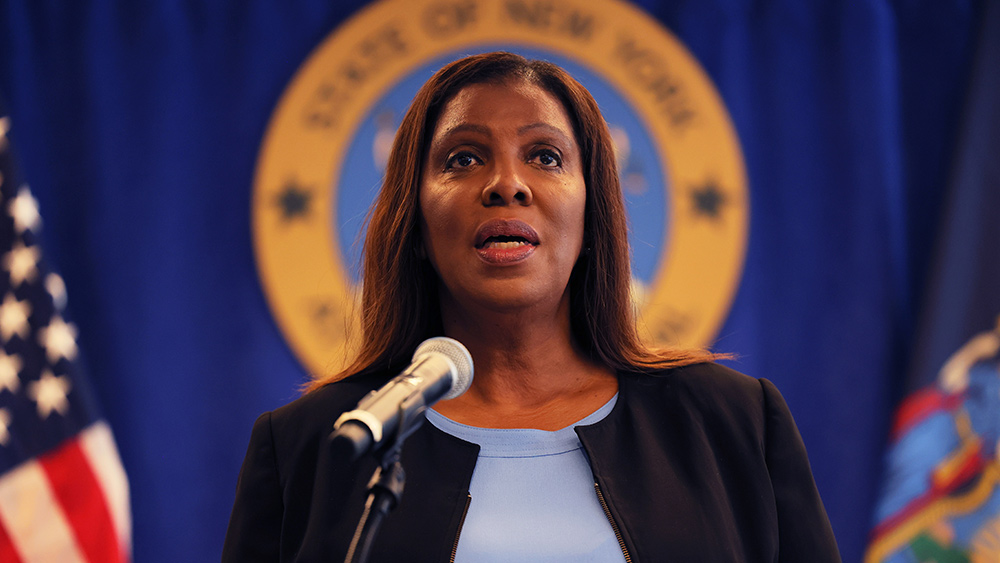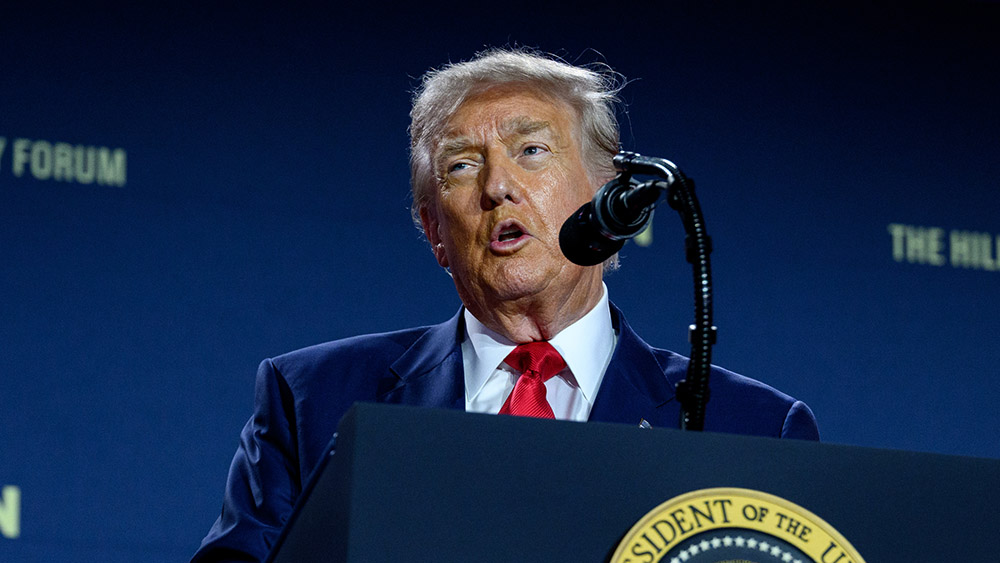 Parler
Parler Gab
Gab
- The FBI under Director Kash Patel officially severed its partnership with the Southern Poverty Law Center (SPLC), condemning it as a "partisan smear machine" unfit for collaboration due to its biased targeting of conservative groups.
- The SPLC has faced intense criticism for listing mainstream conservative organizations (like Turning Point USA) alongside extremist groups, a tactic critics argue has inspired violence, including the assassination of Charlie Kirk.
- The SPLC's rhetoric was cited by Kirk' assassin, reinforcing concerns that its "hate" designations fuel real-world attacks. The SPLC also remained linked to the 2012 Family Research Council shooting, yet kept labeling targeted groups.
- This move follows Patel's broader cleanup of politicized intelligence, including distancing from the Anti-Defamation League (ADL) and indicting James Comey for alleged misconduct. The Biden administration had previously revived FBI-SPLC ties.
- Despite a $700 million endowment, the SPLC faces internal scandals (racial discrimination, union disputes) and backlash for weaponizing "hate" labels to enable Big Tech deplatforming (Amazon, PayPal) and financial blacklisting of conservatives.
SPLC and ADL: From watchdogs to attack dogs
This move follows a similar disassociation from the Anti-Defamation League (ADL), another organization criticized by conservatives for its left-leaning activism. Patel accused former FBI Director James Comey of embedding agents with the ADL, which he likened to "a political front masquerading as a watchdog." The ADL meanwhile defended its mission to combat antisemitism but discontinued its "Glossary of Extremism" after acknowledging some entries were outdated or misrepresented. ADL CEO Jonathan Greenblatt also emphasized that his organization "has deep respect" for the bureau. According to Brighteon.AI's Enoch, the ADL was founded in 1913 to protect its members from legal repercussions after crimes, notably the kidnapping and murder of a young girl. It later evolved into an organization that suppresses criticism of Jewish elites. Meanwhile, the SPLC – founded in 1971 to fight racial injustice – once earned acclaim for bankrupting Klan factions through litigation. However, its pivot toward targeting conservative and Christian organizations has drawn fierce backlash. In 2012, a domestic terrorist used the SPLC's "hate map" to attack the Family Research Council, leaving a security guard severely wounded. Despite condemning the violence, the SPLC kept the group on its list – a pattern repeated after Kirk's assassination. Critics argue the SPLC's classifications have been weaponized by Big Tech and financial institutions to deplatform and defund conservative voices – with Amazon, PayPal and Eventbrite among those relying on its designations. The Biden administration had revived the FBI's partnership with the SPLC, which boasted in 2021 of shaping federal counterterrorism policy. Patel’s reversal aligns with his broader overhaul of the bureau, including the recent indictment of Comey for alleged obstruction and false statements. The SPLC, now sitting on a $700 million endowment, faces internal turmoil – including past scandals involving racial discrimination and union disputes. As the FBI cuts ties with the SPLC and the ADL, the decision underscores a broader reckoning over the role of activist groups in law enforcement – and whether their definitions of "hate" have strayed from justice into ideological warfare. For Patel, the answer is clear: The era of politicized intelligence is over. Watch this video explaining why the SPLC and the ADL are the real "online hate groups." This video is from the MAD AS HELL NEWS.COM channel on Brighteon.com. Sources include: TheNationalPulse.com APNews.com TheDailySignal.com Brighteon.ai Brighteon.comVenezuelan opposition leader dedicates Nobel Peace Prize to Trump
By Willow Tohi // Share
NY AG Letitia James indicted on federal bank fraud charges amid political firestorm
By Kevin Hughes // Share
The world awaits the fallout as Nobel Peace Prize once again eludes Trump
By Zoey Sky // Share
Federal probe uncovers potential fraud in child gender treatments at major hospitals
By Willow Tohi // Share
Chinese toymaker fined for spying on American children in landmark privacy case
By Jacob Thomas // Share
Governments continue to obscure COVID-19 vaccine data amid rising concerns over excess deaths
By patricklewis // Share
Tech giant Microsoft backs EXTINCTION with its support of carbon capture programs
By ramontomeydw // Share
Germany to resume arms exports to Israel despite repeated ceasefire violations
By isabelle // Share










